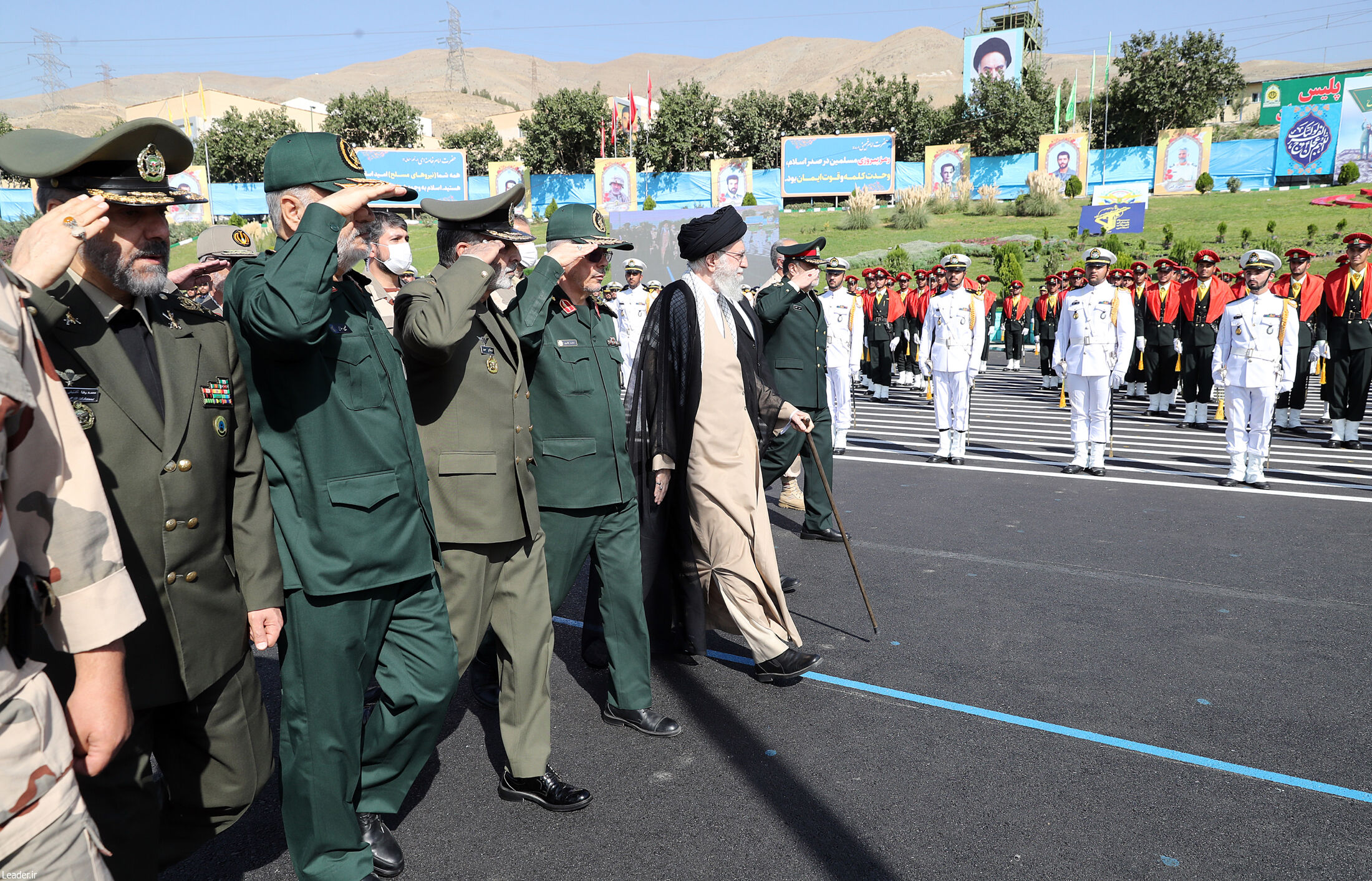Iran's Supreme Leader Ayatollah Ali Khamenei has played down the scale of protests over Mahsa Amini's death, urging the judiciary to put the protesters on trial.
"Some of those who took to the streets are remnants of the hypocrites, separatists, pro-monarchy elements and relatives of the Pahlavi-era intelligence staff, all of whom have been dealt a blow by the Islamic Republic," the official website of the supreme leader quoted Khamenei as saying at a graduation ceremony of police and armed forces cadets on October 3.
In his first public reaction to the nationwide unrest, the 83-year-old leader urged the judiciary to put the protesters on trial and hand down punishments "in proportion with the level of their involvement in the destruction and damage to public security."
Addressing the ceremony on Monday, Khamenei stressed that Amini's death "broke our hearts."
"But what is not normal is that some people, without proof or an investigation, have made the streets dangerous, burned the Quran, removed hijabs from veiled women, and set fire to mosques and cars," he added.
He also accused “the US, Israel and their followers” of planning the continuing protests in the country, saying that such foreign actors would have "created some other excuse" to "generate instability" and "foment riots" in the country.
In his speech, Khamenei alluded to unrest among Iran’s ethnic Kurdish and Baluch populations but argued that Iran would not be divided along ethnic lines.
“I have lived among ethnic Baluchis and they are deeply loyal to the Islamic Republic,” he said, adding that “the ethnic Kurds are also among one of the most advanced groups in Iran who love their homeland, Islam, and the establishment.”
Meanwhile, referring to the ongoing protests, Iran's President Ebrahim Raisi said on October 2 that “the enemy's goal in the new conspiracy was blocking Iran's progress."
"Although the issue of Ms. Amini's death is being followed up completely and carefully and all the officials have emphasized it, at the same time, the enemy is trying to divert public opinion by preparing extensive media measures," he said.
While addressing a gathering of the officials of the Islamic Revolution Guard Corps (IRGC) on the same day, the commander of the IRGC, Hossein Salami, said that "the youths who take to streets should distinguish between friends and foes."
"We will break you down," Salami reportedly warned, addressing the United States, the UK, and Saudi Arabia.
Over 130 protesters were killed in the nationwide unrest over the death of Mahsa Amini in the custody of Iran's morality police on September 16. Meanwhile, 17 deaths were reported among police and Basij paramilitary forces.
A number of female protesters have been filmed burning their hijabs or cutting their hair, making the hijab one of the main themes of the protests in Iran. Meanwhile, some protesters deny allegations that hijab-compliant women were harassed and copies of the Quran and religious sites were set on fire in the past two weeks.
Iran has also been experiencing a severe internet shutdown amid the mass protests. The western province of Kordestan and the south-eastern province of Sistan-Baluchestan have been restive during the protests. University students in several major Iranian cities also gathered on campuses chanting slogans against the ruling system.







 The Mine Action Agency of Azerbaijan (ANAMA) reported on Thursday the discovery of a significant amount of explosives in the Khojavand district of ...
The Mine Action Agency of Azerbaijan (ANAMA) reported on Thursday the discovery of a significant amount of explosives in the Khojavand district of ...
 Iran has refuted reports of alleged damage to Shimon Peres Negev Nuclear Research Centre located southeast of Dimona, Israel, during the recent air...
Iran has refuted reports of alleged damage to Shimon Peres Negev Nuclear Research Centre located southeast of Dimona, Israel, during the recent air...
 Iran’s Foreign Minister, Hossein Amir-Abdollahian, has labeled a foiled Israeli drone attack in certain parts of the country as a "failure" for Isr...
Iran’s Foreign Minister, Hossein Amir-Abdollahian, has labeled a foiled Israeli drone attack in certain parts of the country as a "failure" for Isr...



